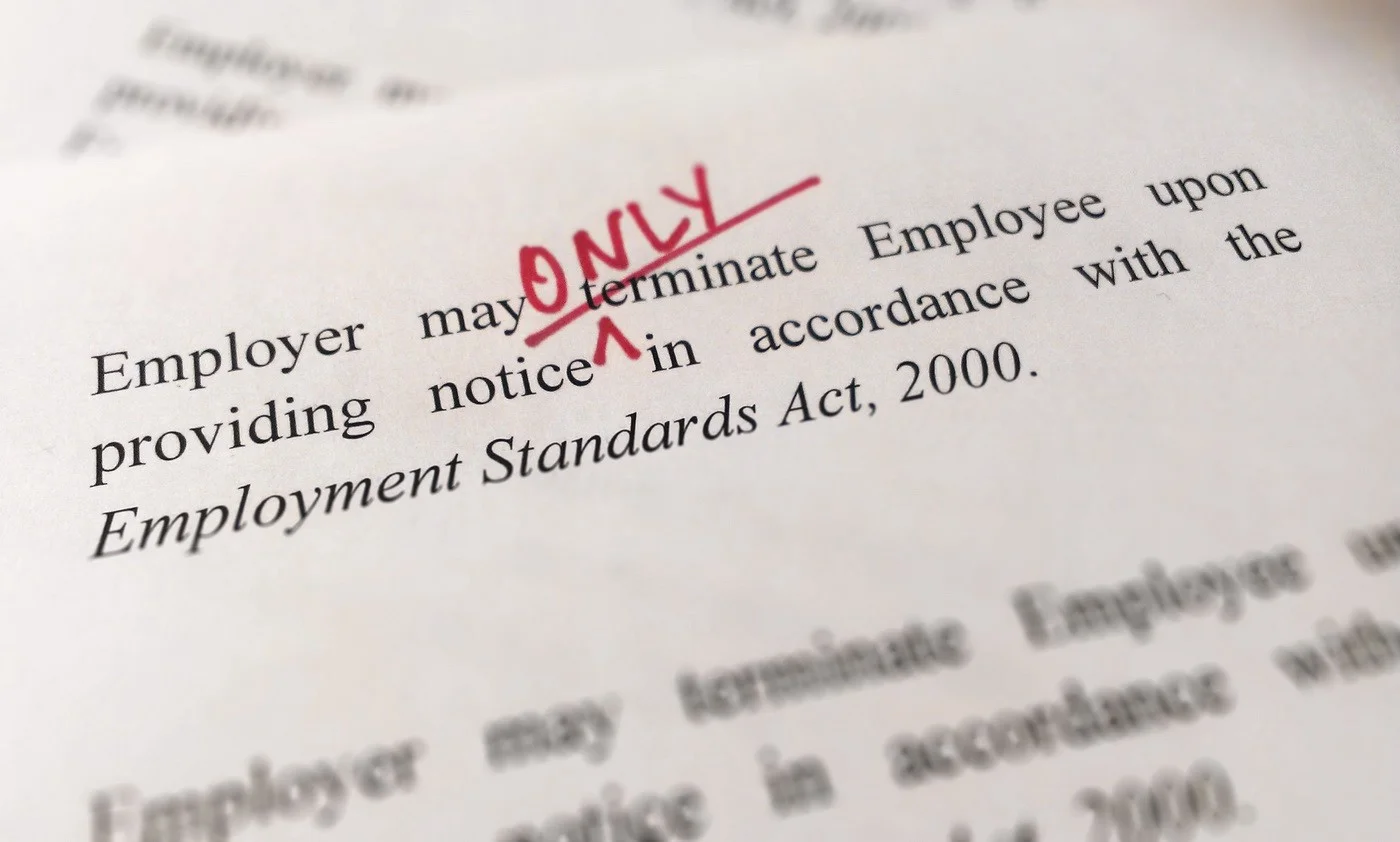Income a person receives from their pension is not considered "mitigation income" and does not reduce the wrongful dismissal damages payable by a former employer.
A recent decision of the Supreme Court of Canada has been mischaracterized as a comment from Canada’s highest court about the use of the phrase “a woman.” In fact, the Supreme Court was just commenting on a technical point of clarity in the trial judge's legal writing. The court was not commenting upon the appropriateness of gendered language in speech.
Canada's highest court won’t hear a further appeal of the Ontario Court of Appeal’s June 6, 2020 Waksdale decision which profoundly impacted the landscape of employment law for both employees and employers. Waksdale's impact will now continue for the foreseeable future.
Employee rights during the COVID-19 pandemic: You don't have to go to work. Your employer doesn't have to pay you, if you don't work. You may qualify for EI Sickness Benefits even without symptoms.
This article looks at wrongful dismissal cases in 2019 to see what Ontario judges thought was bad employer behaviour (and what wasn’t) and how much it was worth.
An employee sued her employer for putting a date rape drug into her coffee. The court declined to order any punitive damages, reasoning that the non-custodial sentence already imposed in criminal court was appropriate punishment.
Employees in a toxic work environment will sometimes share information with each other in confidence while avoiding a formal complaint to the employer out of fear of reprisal. But in a law suit, an employee may have to reveal names to the employer.
Probationary periods are common but not automatic. If it isn't expressly agreed by contract, the law will not presume any period of probation for new employees.
Many lawyers and judges appear to have misread the Court of Appeal's 2017 decision in Brake v. PJ-M2R Restaurant Inc., 2017 ONCA 402 (CanLII), citing the case for a legal proposition which it never actually establishes.
If an employer permits an employee to work from home, that time spent working from home is still time spent on the job. It counts as an hour of work under the Employment Standards Act.
Terminated employees are entitled to receive a pro-rated bonus payment even when the bonus payout day falls outside their notice period. Only clear and unambiguous contractual language can alter or remove this common law right.
Non-employee workers may be categorized as "dependent contractors" when they are "economically dependent" on a client. But this economic dependence must represent "substantially more than a majority" of the contractor's income.
When an employer permits an employee to retract a previously-accepted resignation, the employer can insist upon modified terms to the employment contract as a condition of continued employment, even where there has been no interruption of work.
Don't let the name scare you. A Record of Employment isn't a centralized document accessible to employers detailing your past work performance or discipline history. It's just the name of a form used by Service Canada to assess your entitlement to Employment Insurance Benefits.
Human rights prohibitions against discrimination "with respect to employment" can extend to consultants, contractors, or other non-employee workers.
Ontario has three legal regimes which address gender wage discrimination: human rights laws against workplace discrimination, employment standards for "equal pay for equal work," and pay equity legislation for "equal pay for work of equal value."
Yes, but with some restrictions. Ontario employers can direct when employees take vacation, but employment standards legislation requires employers to at least let employees take their minimum vacation entitlement within ten months of it accruing.
For that matter, what is "unjust dismissal" or "constructive dismissal?" This article provides some brief definitions for these and other bits of employment law legalese.
An Ontario employee was ordered to pay her former employer's legal fees after she made a "substantially unsuccessful" bid to sue her employer following its decision to rehire "her abuser," a former supervisor fired ten years earlier amidst sexual harassment complaints.
The Court of Appeal for Ontario has declined to recognize "harassment" as a free-standing basis to sue in Ontario.
Featuring a fancy chart showing how many months of pay Ontario judges awarded dismissed employees.
A look at wrongful dismissal cases in 2018 to see what Ontario Judges thought was bad employer behaviour (and what wasn’t) and how much it was worth.
Not if the employer has accepted the resignation.
In 2017, the Court of Appeal for Ontario put an end to employers using “severability clauses” to cure contractual violations of employment standards. But in 2018, the court has approved the use of “saving clauses.”
Yes, but only if it’s untrue and the employer acted maliciously.
Adverse treatment of family members in the workplace could ground Human Rights Code harassment complaints.
Another recent Ontario Court of Appeal decision clarifies aspects of the law on employee bonus entitlements after dismissal.
A review of recent Ontario Court of Appeal cases on employee bonus entitlements after employment ends.
How employers can change your contract mid-employment.
The termination clause in your employment contract needs the right language: a review of Ontario cases.
Contact:
Please note that the use of this form does not create a lawyer-client relationship with the recipient. Once you are contacted, the terms of any legal representation can be discussed.






























